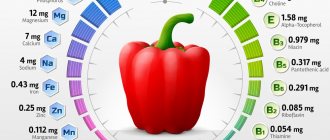09/23/2019 Reading time: 6 min 2449 0
- The main causes of regurgitation in children
- Pathological regurgitation
- How to distinguish regurgitation from vomiting
The most common cause of regurgitation is the structural features of the developing esophagus and stomach in a child in the first half of life, in particular weak muscles of the sphincter (valve) of the esophagus at the junction with the stomach. And the esophagus itself is relatively short and wide. The esophagus and stomach of a child at this age are compared to an “open bottle.”
Therefore, when overeating and (or) excessive air entering the stomach, when the child eats hastily and swallows air along with milk (or cries a lot before feeding), food from the stomach easily moves back into the oral cavity.
Regurgitation is observed, according to various sources, in 80–100% of infants under the age of 3 months. This is normal.
For example, American scientists estimate that regurgitation occurs in 100% of children aged 0 to 3 months, and in 20% of children it continues during the first year of life. In this case, the frequency of regurgitation after feeding ranges from 18 to 50%. In most children, regurgitation disappears or becomes much less frequent by the 4th–6th month of life.
Regurgitation, or regurgitation, is essentially the reflux of stomach contents into the pharynx, esophagus, and then into the oral cavity. Unlike vomiting, regurgitation is a passive process, that is, the muscles of the anterior abdominal wall, diaphragm and stomach are not involved in it. If a child spits up occasionally after feeding, this is normal and does not require special examinations, much less treatment.
It is important to understand two things. The first is how regurgitation (a natural process) differs from vomiting (can be a symptom of disorders in the body and diseases). The second is in what case even regurgitation is a reason to be wary. We'll talk about this below.
Causes of regurgitation in breastfed newborns
When you breastfeed your baby, he is in a lying position. Therefore, not only milk can enter the baby’s esophagus, but also air, which the newborn captures during sucking movements.
If, after feeding, the baby is turned into an upright position, the trapped air bubbles will move up from the esophagus. So, together with the air, the remaining milk is released (regurgitated), which will not necessarily be digested (in this case it will be curdled regurgitation). Regurgitation in newborns during breastfeeding is an absolutely normal occurrence after feeding a baby.
After observing your baby for six months, you will notice that after 6 months his intense regurgitation has stopped. The cessation of regurgitation will not be associated with age, but with the fact that the baby began to be in an upright position more often, having learned to sit.
And even if the baby spits up too often (after each feeding), this is not a problem. Breastfeeding consultants have a “universal measure of regurgitation in newborns during breastfeeding,” according to which one regurgitation should not exceed two tablespoons. Sometimes mothers think that this is a lot, because in fact it is difficult to “measure” the volume of regurgitation, since this mass is immediately absorbed into diapers and clothes. But, observing a “huge blurry spot,” the mother may think that the child did not even eat that much, but burped so much.
To avoid worrying about this, do a simple experiment. Measure the diameter of the stain left on the diaper after spitting up. Then take regular cow's milk, pour 2 tablespoons of this liquid on the surface of the diaper (or table), and then see what kind of stain you get as a result. Now compare both spots and make sure that the baby is not spitting up as much.
Why does a baby spit up?
Why do a child's palms peel - eliminating roughness
A baby can burp for physiological and pathological reasons. Pediatricians identify the following natural causes of regurgitation:
- Unformed digestive system. Especially often, the release of part of the food occurs when the cardiac part of the stomach is not formed. In the first months of life, children have not yet developed the cardiac sphincter. When the baby stops burping, this indicates normal functioning of the digestive system.
Important! Regurgitation is more common in premature babies. Their body is not yet fully formed, and the digestive system is not yet ready for heavy loads.
- Binge eating. Often parents do not monitor the amount of food until the time when the babies stop regurgitating.
- Imbalance between pharynx and intestinal motility.
- Entry of air bubbles into the intestines. If the baby is not applied correctly to the breast, or during intense sucking, some air gets into the stomach along with the food. Its accumulation leads to belching.
- Excessive gas production. They may appear after the baby stops burping.
- Immaturity of the central nervous system.
The following pathological factors are identified for the release of portions of food and air after feeding:
- Damage to the nervous system in the prenatal period of development. If a child suffers from encephalopathy, then he may regurgitate like a fountain. The newborn is restless and sleeps poorly.
- Hydrocephalus. The child cries, throws his head back and often burps.
Hydrocephalus
- Poor blood supply to the brain as a result of trauma during childbirth.
- Abnormal development of the stomach and intestines.
Note! Frequent regurgitation indicates the risk of developing a diaphragmatic hernia, pyloric stenosis (narrowness of the opening between the stomach and duodenum).
- Some infectious pathologies. Regurgitation is possible with meningitis, hepatitis, and other diseases accompanied by nervous excitement.
- Lactose intolerance. If it is impossible to digest lactose, the child will vomit, and often.
- Some hereditary pathologies. The passage of air or food particles occurs during phenylketonuria, adrenogenital syndrome.
What is the difference between regurgitation and vomiting?
Regurgitation is the release of a small volume of milk with air bubbles. Vomiting occurs as a result of a spasm in the stomach, with the contents of the stomach expelled abruptly. If you observe that a newborn's regurgitation during breastfeeding occurs in the form of a “fountain,” this means that it is vomiting. Pediatricians say that one vomit per day in a baby is not a problem.
What do you need to pay attention to to separate a normal situation from a problem?
In this case, you can use the five-point regurgitation scale that breastfeeding consultants use when answering mothers’ questions about regurgitation in newborns while breastfeeding:
- 0 points: the baby never spits up after feeding;
- 1 point: the child has less than 5 regurgitations per day, the volume of each of which is no more than a teaspoon (3 ml);
- 2 points: the child has more than 5 regurgitations per day, the volume of each of which is more than a teaspoon;
- 3 points: more than 5 regurgitations per day, up to 12 meals; this is a reason to contact a pediatrician about a large volume of regurgitation: the pediatrician can prescribe studies that will show the cause of frequent regurgitation in a breastfeeding baby; perhaps your baby’s regurgitation is not a problem, but occurs due to underdevelopment of the esophagus, which will return to normal over time;
- 4 points: slight regurgitation occurs 30 minutes after each feeding;
- 5 points: regurgitation of up to half of all food.
Regurgitation as a physiological norm
Some of the swallowed milk comes out almost immediately after feeding. Sometimes regurgitation occurs only after a while. The milk comes out curdled.
If we talk in detail about how many months a child stops burping, then it should be noted that children who can sit burp very rarely. When the baby begins to walk, he stops spitting up completely. However, this phenomenon may return during teething or in case of poor health.
Babies under 4 months of age almost always spit up. If he has too intense and profuse regurgitation, then you need to tell the doctor about it. He will analyze the situation and take certain measures.
The norm is considered to be regurgitation of liquid, the volume of which does not exceed 3 ml. If it is abundant and observed constantly, then gastrointestinal diseases and neurological pathologies must be excluded.
When should I take my child to the pediatrician?
- When regurgitation in newborns during breastfeeding “fountain” occurs once a day, this may be the norm, provided that there is no admixture of blood or bile in the vomit. If it is, the child must be shown to a pediatrician.
- If the number of regurgitations gradually increases over several days.
- If regurgitation occurs later than an hour after eating: this is an unusual situation, so it is better to show the baby to a doctor.
- If, against the background of regurgitation (which you consider too abundant or frequent), the baby is not gaining weight well and at the same time he is passing little urine; Be sure to report these facts to your doctor.
- If your baby spits up constantly during one feeding.
- If your baby cries a lot after eating, he or she is uncomfortable or in pain immediately after eating.
- If your baby often coughs after eating, milk may have entered his respiratory tract: to prevent the situation from developing into bronchitis, you need to seek help from a pediatrician.
- If your child has problems swallowing.
Why does a baby spit up like a fountain after formula feeding?
Typically, a baby reflexively burps to free the tummy from excess air or excess food. Well, what if the baby spits up after every formula feeding, even if he receives the ideal amount of food? Valeria Maksimovna Shchelkunova, a mother and neonatologist from Spain, shares her observations and advice.
— Valeria Maksimovna, when a baby spits up a lot, is this normal or pathological?
- Regurgitation does not always indicate the presence of pathology; even heavy regurgitation due to overfeeding can be considered normal. According to the table for assessing the frequency and volume of regurgitation, the process is considered functional if it does not cause significant disturbances in the child’s condition or does not worsen his quality of life.
Assessing the intensity of regurgitation
| 0 points | No spitting up |
| 1 point | Less than 5 regurgitations per day, volume no more than 3 ml |
| 2 points | More than 5 regurgitations per day, no more than 3 ml in volume |
| 3 points | More than 5 regurgitations per day, up to 1/2 the amount of formula administered per feeding, no more than half the feedings |
| 4 points | Regurgitation of a small volume for 30 minutes. or more after each feeding |
| 5 points | Regurgitation from 1/2 to the full volume of formula introduced during feeding, in less than half of the feedings |
Regurgitation is considered physiological if:
- the child is gaining weight well and is not lagging behind in growth;
- there are no blood impurities in the vomit, no aspirations, no respiratory arrests;
- the child has no difficulties with sucking and swallowing;
- feeding does not occur in abnormal positions.
— How to distinguish vomiting from regurgitation?
- Fountain regurgitation is a profuse vomit of just eaten breast milk or formula. In the classical sense, regurgitation is the reverse outflow of food from the stomach in a volume not exceeding 5 ml. Anything more can be called vomiting.
— Why does the child spit up a lot? Does formula feeding affect regurgitation?
— If a child spits up like a fountain after drinking the formula, the reasons can be diametrically opposite - from the inadequacy of the proposed diet to serious health problems: developmental defects, neurological diseases. Functional regurgitation must always be distinguished from regurgitation as a result of pathology - and decisions must be made based on the reason.
Causes of excessive regurgitation in infants
| Inadequate mixture volume |
|
| Incorrect posture during feeding |
|
| Digestive problems |
|
| Neurological diseases |
|
| Intoxication syndrome |
|
— When a child spits up after feeding formula, could this be a symptom of a food allergy?
— With an allergy to cow's milk protein, as with any food allergy, an aseptic inflammatory reaction occurs in the intestinal wall, and protein absorption is affected. In addition, carbohydrate metabolism is disrupted, because secondary lactase deficiency occurs due to inflammation of the intestinal wall (decreased production of the lactase enzyme). As a result, lactose (milk sugar) is not broken down adequately, leading to increased gas formation and vomiting. The baby may experience discomfort at the beginning of feeding and react with increased nervous excitability when peristalsis increases. This can also cause vomiting.
— If there are any symptoms, the child should be taken to the pediatrician?
— There are a great many symptoms, so if parents doubt something, they need to see a doctor, even if they have been told a hundred times that this is normal.
A doctor's examination is required if:
- the child vomited all the formula he ate;
- the baby burps after each feeding, and the regurgitation is profuse;
- against the background of vomiting, there is a high fever and body rashes;
- there is a lag in anthropometric data;
- the child is restless or, conversely, too lethargic;
- after vomiting, in a normal state, the child’s voice changes, wheezing is heard in his breathing.
— Valeria Maksimovna, if infant regurgitation is regarded as a disease, how will they be treated?
— Therapy will be aimed at the reason why the child is spitting up profusely.
|
|
Prevention of aspiration and swallowing large amounts of air:
- adequately selected mixture and its calculated volume;
- anti-reflux or anti-colic nipple;
- feeding the baby in an elevated position at an angle of 30-45 degrees, slightly turned to the side;
- long enough wearing in a column (at least 20-30 minutes) and rest after feeding with delayed massage, active exercises and games.
There are no special medicines or traditional methods for treating regurgitation and vomiting. If it is not possible to determine the cause of this condition, the doctor prescribes an anti-reflux formula or the introduction of a thickener into the formula (breast milk) as therapy.
— How do antireflux formulas help prevent regurgitation?
— Anti-reflux formulas are practically no different in composition from regular formulas: their basic components completely cover all the baby’s necessary expenses. The difference is that thickeners are added to anti-reflux mixtures - special substances that, when they enter the stomach, swell and thereby retain its contents. Their effect subsides as the contents move through the gastrointestinal tract.
— What feeding regimen can be considered optimal for a child under one year old?
|
|
|
| If you breastfeed every time your baby cries, you may end up overfeeding and end up with excessive regurgitation. | If you feed formula on demand, you will not be able to take into account the amount eaten, because one way or another the daily amount of food is calculated, which cannot be exceeded. | To determine the amount of supplementary feeding with formula, control weighings are carried out before and after breastfeeding - that is, you cannot dilute a full bottle of formula and decide that as much as the child eats, he will eat as much. |
Not every baby's anxiety means he demands to eat. If less than an hour has passed since the previous feeding, you need to think a hundred times whether the baby is really hungry. Sometimes it is enough to change the diaper, carry the baby in your arms, talk to him affectionately - pay attention to the baby.
— Which mixture is better to choose to prevent regurgitation?
— As a rule, the first mixture is prescribed randomly: the choice is more related to the preferences and experience of the pediatrician, and the behavior of children on a particular mixture. If the selected mixture is not suitable, a formula with other components is selected, and work is carried out to identify what the child might not like in the first mixture. The formula is selected based on age. For each age group, a certain composition of the mixture is required, covering all the necessary costs of proteins, fats, carbohydrates, minerals and other nutrients. Choosing a formula line is the choice of a pediatrician whom parents trust.
— What determines the volume of the mixture?
— The volume of the mixture is selected individually. Using the calculation formulas, the daily volume is first determined, which is divided by the number of feedings per day - this is how the dose per feeding is determined. All calculations are carried out by the doctor so that there is no overfeeding or underfeeding.
— When should the mixture be replaced?
— The formula is changed when the baby spits up like a fountain after each feeding or the mother and the doctor cannot find a reason for this other than using the formula. This is also done when an allergy to cow’s milk proteins, lactase deficiency is confirmed, and, if necessary, a specialized medicinal mixture is introduced in case of a proven metabolic disorder. And the formula needs to be changed according to age - an incorrectly selected formula does not cover the baby’s expenses and is not absorbed.
Signs that may alert you to artificial feeding:
- lag in height and weight gain;
- intolerance to the components of the mixture, which may be accompanied by regurgitation, allergic rashes, hives, rash on the cheeks;
- restlessness when feeding, spitting out formula;
- tummy problems: increased gas production, colic, bloating up to the “drum” of the abdomen;
- changes in stool: constipation and hard stool, diarrhea, foul-smelling character, mucus, blood, undigested lumps.
— How can a child’s digestion change after switching to a new formula? And are there any reasons to see a doctor?
— When switching to a new formula, everything can change dramatically, even if the new food is in the same line as the previous one. The transition should always be gradual, because it is not possible to find the problem right away.
Symptoms of anxiety
- Any skin manifestations and digestive problems that have never happened before.
- The child began to behave restlessly, cry a lot, worry, or, on the contrary, looks too lethargic, wakes up both at night and during the day.
- The child farts a lot, but sometimes does not poop, even if he pushes hard.
- The baby's stool is too loose and frequent.
You need to urgently run to the doctor if you have allergic manifestations. Dyspeptic disorders associated with regurgitation or vomiting, impaired intestinal motility, constipation, can resolve on their own as you get used to the new mixture. There must always be an adjustment period. The child needs at least two weeks to get used to the new mixture: this is especially true for medicinal mixtures with a specific, unusual taste. There is no need to panic here, the problem is not nutrition.
— By what age should regurgitation normally stop completely?
- Regurgitation finally stops when the baby stops receiving formula or breast milk. But the frequency of such conditions decreases significantly by 6 months of age, when the child begins to eat while sitting or at an angle of more than 45 degrees.
There are a great many reasons for regurgitation, from something as simple as overfeeding to something as complex as neurological disorders. You must always be on your guard: look at the symptoms of regurgitation and evaluate their features, that is, try to find the cause. Most often, regurgitation is physiological and can be easily corrected with diet therapy, correct positioning of the baby during feeding, and compliance with the diet and volume of food. If a child vomits from formula, it is recommended to consult a pediatrician about nutrition and its changes.
general practitioner, neonatologist-reanimatologist, specialist in children's medical massage, blogger
Shchelkunova Valeria Maksimovna
*The ideal food for an infant is mother's milk. WHO recommends exclusive breastfeeding for the first 6 months. MAMAKO® supports this recommendation. Before introducing new foods into your baby’s diet, consult a specialist.
Was this article helpful? Share it on social networks!
How to determine whether you have attached your baby to the breast correctly?
Smacking sounds when sucking will tell you that the attachment is incorrect and that there is a distance between the breast and the baby’s mouth.
When applied correctly:
- The child’s mouth should be well open, the nose should be pressed to the chest; if the baby does not open his mouth enough, lightly press his chin, helping to open his mouth better; don’t worry about the pinched nose and don’t move your chest further - the baby has something to breathe;
- there is no free space in the corner of the child’s mouth (the baby must create a vacuum with his mouth without letting in excess air);
- the baby grasps not only the nipple, but also the areola (its upper part a little, the lower part as much as possible);
- the mother has no pain, because feeding is not intended by nature as a test, but as the most comfortable process for mother and child; during the first week of feeding, in the first 5 seconds after latching the nipple there may be a slight discomfort, but not pain; pain, bruises and cracks are indicators of improper breastfeeding;
- The baby does not make any extraneous smacking sounds.
By the way, the cause of air capture can also be a strong flow of milk from the mother: in order not to choke in this flow, the child captures air.
Features of the gastrointestinal tract in newborns
Newborn babies are distinguished by the following features of the gastrointestinal tract:
- Underdeveloped lower esophageal sphincter, which cannot yet fully retain food in the stomach;
- The stomach is round in shape and holds a very small amount of food;
- Short esophagus;
- The process of regulating the movement of food through the gastrointestinal tract is not sufficiently formed;
- Insufficient amount of enzymes;
- Severe intragastric pressure resulting from the special rhythm of newborns sucking milk or formula.
All these physiological features in most cases disappear by 6 months. In some completely healthy children, reflux can last up to a year. Premature babies or infants with developmental disorders may suffer from reflux for up to 1.5 years.
Note! If a child spits up a large amount of milk, or even the entire amount of milk eaten, you should not feed him right away. It is better to give the tiny ventricle time to calm down. The next feeding can begin after 40-60 minutes.
Stomach of a newborn
Is it necessary to hold the baby upright after feeding?
In order for air bubbles to freely leave the esophagus, after feeding it is better to hold it in a “column”, but not necessarily strictly vertically. It is enough to give the baby's body a semi-lying position (at an angle of about 45 degrees), this can be done with the help of a feeding pillow. When feeding at night, the mother does not have to get up and carry the baby upright, waiting for him to burp. You can simply place a folded towel or diaper under the mattress in the crib so that the baby's head is slightly elevated when lying down. For safety reasons, the pillow should not be used.
Prevention measures
Simple tips to reduce the number and volume of burps:
- Be careful about the portions of food your baby eats to avoid overfeeding.
- When breastfeeding, you need to make sure that the baby grasps the areola, and only the nipple. When artificially feeding, make sure that the nipple is full; if there is air in it, the baby will swallow it, which will lead to regurgitation.
- Feeding should take place with the baby's body elevated; a horizontal position is undesirable. The body should be in an inclined position at an angle of 30°.
- During feeding you need to take short breaks. Constantly pouring milk will quickly fill the tummy and provoke regurgitation.
- After eating, the child is held in a column. This position promotes the release of air and helps avoid colic.
- In between feedings, the baby should lie on his tummy.
- After eating, the baby needs to be at rest.
When preventing regurgitation, you need to choose a comfortable pacifier for your baby. Babies respond well to anatomically shaped anti-colic nipples.
If your baby receives mixed feeding, it is better to choose elastic nipples with small holes. The larger the hole, the easier it is to suck the pacifier. Babies refuse to breastfeed so as not to waste extra effort and calmly drink milk, which flows into the mouth on its own.
Common situations
The baby spits up like a fountain
If after feeding a newborn regurgitates like a fountain , parents are very afraid of this phenomenon. In any case, there is no point in panicking. First of all, you need to understand what the reason is:
- the child spits up like a fountain, due to prematurity and slow functioning of the digestive system;
- when switching from breastfeeding to artificial feeding, the baby may begin to spit up like a fountain. Perhaps parents just need to change the formula. If the child continues to spit up profusely, you should consult a doctor;
- Gastrointestinal colic can also cause the baby to spit up. In this case, mom and dad need to be patient and wait out this difficult period;
- rarely, but it happens that the reason for regurgitation in a fountain lies in the deformation of the internal organs . In this case, immediate medical attention is necessary.
Of course, any parent will wonder why a newborn baby spits up like a fountain. If this has been going on for a long time, tell your pediatrician about it.
Regurgitation of curds
When a baby spits up a mass that resembles curdled milk or cottage cheese, there is no reason for parents to worry. This phenomenon is absolutely normal .
Regurgitation is frequent, but not excessive
If a mother is concerned about the baby's frequent, but not excessive regurgitation, it is most likely worth reconsidering the feeding regimen, as this is often due to overfeeding . If your baby continues to spit up, you should consult a pediatrician.
What is the norm?
It is extremely difficult to talk about the norm when we are talking about an infant. Each baby is individual from birth, which cannot but affect his mobility, appetite, feeding and sleep schedule.
Pediatricians and neonatologists talk about the following standards:
- By the age of one year, the problem of regurgitation should stop bothering the baby, if we talk about his physiological appearance. If throughout this time the child is cheerful and cheerful, grows well and develops fully, regurgitation of such a baby during feeding can be considered the norm;
- By the age of 4 months, the child’s gastrointestinal tract is already fully formed and ready for full-fledged work. Starting from this time, the norm can be considered to be regurgitation of no more than 2 teaspoons of food per feeding or 3 teaspoons if this happens once;
- if, despite the presence of regurgitation, the child has a good appetite, there are no questions from a specialist such as a pediatric neurologist - we can talk about the norm.
Photo source: shutterstock.com
Is it possible to stop or reduce the intensity of regurgitation in children?
For babies with similar problems, there are no medications or devices available in the pharmacy that reduce the frequency and amount of regurgitation. The only thing the supervising doctor can do is recommend a remedy for intestinal overflow with gases. For example, based on simethicone: it “collapses” the bubbles, which then no longer put pressure on the intestinal walls and do not push the contents out.
The rest depends on how well the mother knows the feeding technique so that the baby does not suck in air, and knows how to help the baby burp.
Such measures include:
- Correct attachment to the breast. Lactation consultants and doulas provide great support here. They will be able to stay with you during feeding and check the correct position and how the baby sucks.
- Feed the bottle at an angle so that the nipple is completely filled with the mixture. The nipple is selected with a hole according to age or with an anti-colic design.
- You can feed your baby small portions for a while . For a breastfed baby, reduce the time, but not the frequency, of feedings. For a formula-fed baby, reduce the volume of formula per feeding, while maintaining the daily age norm. How much to reduce the amount of food and how to maintain a balance will be determined by a doctor who has known the child since birth and who has prescribed the mixture.
- After each feeding, try to carry your baby in a column position for 20-30 minutes or until the air leaves.
- If your baby falls asleep without burping, you can easier for air to escape by slightly raising the head of the bed using a flat pillow under the mattress. It is important to ensure that the baby's head is slightly tilted to the side to prevent aspiration during regurgitation.
“Silent” regurgitation, which does not cause effort or anxiety in the baby, does not interfere with proper weight gain, is physiological. It will all end in the blink of an eye, but infant regurgitation can and should be prevented.
When breastfeeding, it is necessary to follow certain rules, and when artificially feeding, you should not once again transfer the baby from one formula to another: in order for the formula to become a real assistant for the digestive system, it must be selected with a doctor.
Formulas based on natural goat milk, for example, MAMAKO ® Premium, can prevent or cope with digestive problems thanks to a modern, scientifically verified composition with IQ complex, bifidobacteria, and prebiotics.
MAMAKO ® is baby food made from goat's milk from birth. MAMAKO ® Premium - adapted goat milk mixtures are produced in the north of Spain in the Asturias region, which is known for its centuries-old traditions of producing dairy products. Goats graze here all year round, and the pastures remain green due to the humid temperate climate of the Cantabrian foothills and proximity to the Atlantic Ocean. The rich diet of Asturian goats ensures the highest quality milk.
MAMAKO ® baby porridges and cream soups are produced at the FLORY plant in Serbia using technologies developed in Germany (СomidaMed ® GmbH).
Children's fruit purees with goat curd MAMAKO ® are produced at a plant in the Moscow region, Russia and fresh goat curd from farms near Moscow.
When should you start worrying?
Young parents often worry that their baby spits up a lot at 4 months. However, age is not the main thing to pay attention to. The baby can continue to spit up at 7 months, and even at 8. You should be concerned in a situation where:
- the baby spits up like a fountain;
- the amount of regurgitation is more than 2 tablespoons;
- the baby is not gaining weight or growing;
- he sleeps poorly, screams and cries a lot;
- The baby burps regularly, more than 3 times a day.
Sometimes such a reaction of the body can be a symptom of a disease. Regular profuse regurgitation in a fountain is often observed in babies with pathologies of the nervous system, digestive tract, and when infected with a staphylococcal infection.
Many pediatricians (including Dr. Komarovsky) agree that it does not matter at what age a child burps. If the baby has no neurological problems, no digestive defects, and is gaining weight well, then sooner or later he will stop regurgitating. A child's stomach becomes similar to an adult's only at the age of 8. Therefore, all you can do now is to follow simple rules for caring for your baby, thereby reducing the frequency of regurgitation.
The age when babies stop burping is 6 – 9 months. Before this, you can use preventive measures that can reduce the number and intensity of regurgitation.
The moment when food comes back into the esophagus and then out is called regurgitation. Since a burping baby causes inconvenience to parents, the question arises: when do babies stop burping? But this is normal for babies, so you just need to be patient.
How to reduce the likelihood of an unpleasant manifestation?
In cases where regurgitation does not bother either the child or the mother, there is no need to worry about this. If it is obvious that the process causes significant discomfort to the little one and he has to constantly change into dry, clean clothes, you can try the following techniques:
- After each feeding, you need to take the baby in your arms, giving him an upright position. At the same time, you need to try not to squeeze the baby’s overfilled tummy. We wait for the excess air to come out of the stomach (this is accompanied by characteristic hiccups). If necessary, cover one shoulder with a clean towel and lightly press the baby towards you, allowing him to get rid of excess food.
- Regurgitation often bothers babies on mixed feeding, regardless of how many months it was introduced. This is explained by the difference in the quality and composition of the products consumed. Sometimes the baby spits up only because he overeats, while the mother is sure that he is hungry.
- For half an hour after eating, you should not let your child lie on his tummy, actively move, or have fun with toys. It's better to carry it in your arms for a while.
- There is a special rule for mothers who worry that they are constantly underfeeding their babies. If such suspicions exist, newborn babies should be fed little and often. In this case, breast milk will gradually be absorbed and leave the stomach, preventing it from overflowing. In addition, it is recommended to monitor the baby’s weight gain using sensitive scales and monitor his general condition. A cheerful, cheerful and active child cannot experience hunger. And whims and lethargy do not always indicate that the baby is hungry.
Often, frequent or heavy regurgitation goes away on its own and happens unnoticed. The frequency of the phenomena does not even always decrease, they simply disappear. In some cases, in addition to eliminating irritating factors, you have to undergo massage sessions or swimming lessons in the pool.
The birth of a child is the most beautiful miracle in the world. The birth of a baby brings joy to parents, however, there are some features of the gastrointestinal tract that make parents worry.
Regurgitation in newborns usually occurs an hour after feeding. This process is inevitable and is the norm in 85% of children . It cannot be treated and goes away by about 8 months of the child’s life. In some cases, the problem may persist in children older than one year, in which case it will be necessary to consult a pediatrician for advice.
What to do?
The solution to the problem depends on what caused the regurgitation.
If parents are sure that improper feeding is to blame, they should adhere to the following recommendations:
- keep the baby upright both before and after meals. This usually lasts 5 to 10 minutes to allow the baby to release any air he or she has swallowed;
- do not put the baby to the breast when he cries;
- During feeding, hold the baby upright or at an angle. The main thing is that his head is higher than the level of his body;
- If a child is fed an artificial formula, select a pacifier with an optimal hole size (neither large nor small). If necessary, you can consult a pediatrician;
- Before feeding, examine the baby’s nose, remove mucus and crusts from it using an aspirator. Difficult nasal breathing leads to the fact that the baby begins to breathe through the mouth while eating. This causes regurgitation;
- hold the bottle so that the nipple is filled with the mixture;
- provide the baby with peace after eating. Any active pastime should be avoided for 30 minutes after eating. It is forbidden to throw or turn over a child.
Sometimes mothers express initial milk, which has low nutritional value and is easy to suckle. As a result, the baby eats more slowly and gets full faster.
Most common reasons
As the name implies, regurgitation is a partial return of milk eaten during feeding from the stomach and its release through the mouth. In most cases, this process does not cause discomfort to the infants themselves. However, parents are worried: is the baby healthy, is he eating enough, how can I help him?
Frequent and relatively safe reasons why a baby spits up are:
- Banal overeating. Excess milk, which stretches the walls of the stomach, is removed in the fastest way.
- Incorrect application. In this case, the baby does not completely grasp the nipple, along with part of the areola, and during feeding swallows air, which sinks in the stomach below the milk and creates pressure - everything eaten is practically pushed out with air coming out in the form of a belch.
- Being too active while eating, turning around and crying also takes in some air.
- Mistaken behavior of parents - squeezing, turning over, throwing the baby right after eating.
More alarming reasons are:
- Immaturity of the digestive organs in newborns. Occurs in premature babies, after difficult births, usually gradually disappears by 2 months of age - with the maturation of organs and systems.
- Lactose intolerance - milk protein. It occurs when there is insufficient production of the necessary enzyme for its breakdown - lactase.
- Infectious diseases. In this case, the belching will be greenish in color, with bile, the baby’s temperature will rise - you can’t hesitate, go to the hospital immediately.
- Neurological disorders or anomalies in the structure of the gastrointestinal tract - in this case, consultation with a specialist is required. There is no need to worry in vain - such serious problems will not pass the attention of neonatologists already in the maternity hospital, so parents will definitely receive the necessary consultation and prescriptions.
Volume and frequency of regurgitation
If after feeding the child spits up sporadically, no more than 3 tablespoons of curdled milk, the tummy is soft, and constipation does not bother him, then there is no reason to worry. Regurgitation will go away on its own as the baby gets older.
If the baby regurgitates constantly, with a strong cough, crying, a fountain, in large volumes, masses with an unpleasant odor, green or brown tint are expelled, the baby is not gaining weight well or even loses weight - with such symptoms, you must definitely contact a pediatrician, neurologist and gastroenterologist. Consultation is also needed if regurgitation does not stop after the child is one year old.
Parents' actions
In case of serious pathologies, the doctor will prescribe treatment; in case of lactase deficiency, the pediatrician will select the necessary mixture to complement breastfeeding.
If there are no serious pathologies, then the following preventive measures will help reduce the number and volume of regurgitation:
- mandatory placement of the baby on his tummy before breastfeeding;
- compliance with the rules of the technique of applying to the breast when feeding, the head should not be thrown back - raise it slightly in a reclining position;
- breaks during feeding and raising the baby in a “column” to get rid of trapped air;
- feeding in small portions on demand, avoiding overfeeding;
- A tiny baby should also be held upright after eating; a baby who can sit should be seated. This way you will avoid regurgitation while lying down - in especially serious cases, the baby may even suffocate;
- Avoid vigorous activity of the child after feeding;
- If regurgitation occurs frequently, place the baby with her head raised and slightly turned to the side - place a rolled up towel or thin blanket under the mattress at the head.
In general, if regurgitation is not accompanied by weight loss, then it is not dangerous to the baby’s health. If you lose weight, have a fever, or change the color or smell of vomit, you should definitely consult a doctor. You can alleviate the condition of the baby and reduce the number and volume of regurgitation by applying the baby correctly, avoiding excessive feeding, laying the baby on the stomach and carrying the baby upright. So both the frequency of regurgitation and the intensity of painful colic from increased gas formation will decrease. Later, by 6-12 months, when the baby gets stronger, regurgitation goes away on its own.
It is necessary to understand the reasons and some features of this phenomenon.
To understand how to help a baby when regurgitating after feeding, it is necessary to understand the causes and some of the features of this phenomenon.
In itself, regurgitation in newborns is a natural process. This releases the air that accumulated during feeding. Along with it, breast milk or formula can involuntarily rise back from the stomach into the esophagus and higher, into the baby’s throat and mouth.
Associated symptoms
Depending on the disease that caused the regurgitation, the child may experience other symptoms:
- restless behavior, crying, whims;
- sleep disorders (insomnia or drowsiness);
- increased body temperature;
- pale skin;
- throwing back the head during sleep;
- undesirable symptoms from the gastrointestinal tract: colic, constipation, flatulence (increased gas formation and bloating);
- vomit.
It should be remembered that when regurgitating, the abdominal muscles do not contract, and undigested food flows out of the mouth in a thin stream. This usually occurs after feeding, especially with a sudden change in body position.
As for vomiting, it is accompanied by cramps in the stomach and contraction of the abdominal muscles. In this case, a large amount of food (often yellowish) comes out. Rapid breathing and increased sweating are often observed before vomiting.
Norms and deviations
How to put your child to sleep in the evening without crying in 5 minutes
In general, regurgitation as such is a variant of the norm. Up to three months they happen every day. Due to the structure of the gastrointestinal tract, food can pass from the stomach back into the esophagus and be eliminated through the mouth. The norm is the volume of regurgitated milk or mixture is no more than 1 teaspoon at a time for a baby up to two months and no more than 1 tablespoon for toddlers older than this period.
Newborn burped
Until about six months, a child regurgitates curdled milk (or regular milk, without lumps) up to 8 times a day. This is also natural if the volume standards are not exceeded. Belching may have a slightly sour smell (after all, it mixes with stomach acid), white or slightly yellowish in color.
In some cases, the mother needs to pay attention to the fact that something is going wrong. This happens when:
- The volume of regurgitated milk or mixture is more than 2 tablespoons, and this is repeated. A newborn baby regurgitates almost everything he has eaten.
- The baby burps like a fountain, that is, sharply and profusely. In fact, this is no longer regurgitation, but vomiting.
- Curdled milk contains traces of blood.
- The baby spits up a lot (more than expected) and often cries afterwards. He also gains weight poorly, wakes up frequently, and is restless. Perhaps his esophagus is irritated.
In any of these cases, you should contact your pediatrician. Perhaps he will refer you to a gastroenterologist, surgeon, or neurologist.
Regurgitation in a fountain can be a conditional norm when it acts as a protective reaction of the body. This happens when the baby’s temperature rises sharply. Children often vomit violently in this case. Food provides warmth, which the body does not need at the moment, so a person may begin to feel sick.
The baby burped like a fountain
Attention! If there is mucus or greenish bile in the vomit, you should immediately call an ambulance. This may be a symptom of intestinal blockage. With this diagnosis, the child requires emergency medical care and, possibly, immediate surgical intervention.
Real and imaginary dangers
The real cause for concern is the thick consistency of the milk, which appears 2-3 hours after feeding. This does not refer to regurgitation, this is vomiting.
This sign indicates problems in the functioning of the stomach. The solution to the situation is an examination by a pediatrician and gastroenterologist.
Another alarming factor is that the mass that comes out is yellowish or brown in color. This is a sign of irritation of the intestinal walls and the inability of the stomach to fully accept food.
In the list of real dangers, excessive vomiting is one of the signs of intestinal obstruction. In this situation, immediate treatment is required. Other factors that indicate problems with the stomach:
- regurgitation is repeated 2-3 times;
- the child suffers from colic;
- the baby is capricious and cries often;
- Due to pain in the stomach, the baby arches.
An alarming sign is regurgitation in a child who is more than six months old. During this period, the stomach is already adapted to different foods, and when overeating, the baby should simply turn away and refuse food.
Women who have become mothers for the first time are most often exposed to imaginary dangers.
If a child is steadily gaining weight, is active and develops normally, there should be no reason to worry.
A child may burp and not even pay attention to it - this is a normal state.
A safe amount is 3 ml or less (1 tsp). If a baby spits up like a fountain after feeding breast milk, this is not scary - this is caused by imperfect physiology and anatomy.
Each child is special and individual. He may regurgitate due to anatomical imperfections of the gastrointestinal tract or due to the development of certain diseases. To reduce mommy's anxiety, you should regularly visit your pediatrician for consultations. If the baby is healthy, regurgitation will stop after the sixth month of life.
What is the danger of spitting up in your sleep?
Toys for boys under one year old - which ones are best?
If a child spits up very often, then parents should pay special attention to the position in which their child sleeps. This is very important, since the stomach of a sleeping baby can push some of the food out of the stomach at any time. The danger is that when the mouth is closed, a small part of it will get into the nose, and the bulk will leak into the lower respiratory tract. If the baby sleeps on his back at this moment, then in a matter of seconds he may choke.
Additional Information. Up to six months, it is better to put babies to sleep on their side and place a soft cushion from a diaper under the backrest. This will prevent the child from rolling over onto his back. It is also important to ensure that the baby's head is slightly higher than the body.
Burping up like a fountain
When will the baby stop spitting up?
In the first two weeks after birth, babies usually digest food completely. Regurgitation appears with the arrival of mature milk, that is, 20–30 days after birth. With artificial feeding, a similar phenomenon can occur almost immediately. But until what age do babies usually spit up?
Once the baby learns to sit, he will spend more and more time in an upright position. Accordingly, the location of the stomach will also change. The child will begin to burp less and less, then this phenomenon will stop altogether. It is impossible to say exactly at what age this will happen. Children usually begin to sit up independently at six months. But sometimes a 7-month-old baby spends most of his time lying down.
Some children stop burping earlier, at four or even two months. Most often this is due to the establishment of lactation in the mother. Milk arrives exactly in the quantities that the child needs, that is, he does not overeat.
Causes
Normal regurgitation, not caused by any disease, occurs almost immediately after eating. Undigested or semi-digested milk simply trickles down the baby's chin. At the same time, the amount of regurgitation is small, maximum 30 ml (1.5 tablespoons).
But why does the baby spit up? The reason usually lies in the physiological characteristics of the newborn. The fact is that a baby’s stomach is different from an adult’s. Firstly, he is in a horizontal position, and secondly, his locking sphincter is not yet fully formed. It turns out that under any stress (overeating or stress), the milk eaten simply pours out.
The most common causes of regurgitation after eating:
- Binge eating. Often, too much milk leads to the baby spitting up after feeding. This can happen both with artificial feeding (the previous portion has not yet had time to be digested) and with breastfeeding (the baby often suckles at the breast to calm down).
- Aerophagia (swallowing air). A newborn may spit up milk if he swallowed a lot of air during feeding. This often occurs when the breast is not applied correctly, the frenulum of the upper lip or tongue is too short (the baby cannot properly grasp the mother’s nipple). In this case, the child will also be bothered by bloating, flatulence, and colic.
- Physical activity immediately after feeding. If you have the habit of playing with your baby after eating, laying him on his stomach, shaking him, turning him over abruptly, swaddling him tightly, then you shouldn’t be surprised that he constantly spits up. Insufficient development of the muscles of the cardiac part of the stomach, even with a small load, can lead to the effusion of food outward.
- Psycho-emotional stress, overexcitation. Sometimes a child may burp after crying a lot, a long trip, or a family quarrel. Early swimming, frequent visits from strangers, long periods of lack of sleep, etc. can have a negative impact on the psyche.










